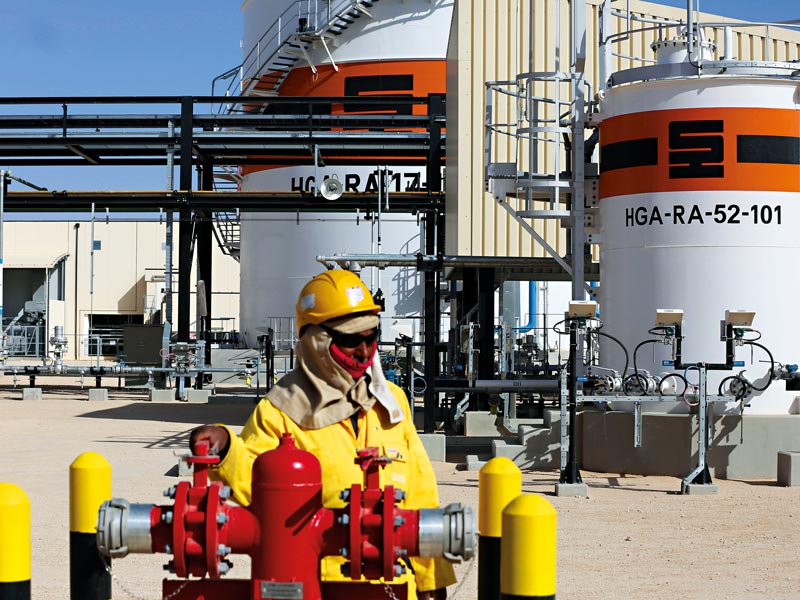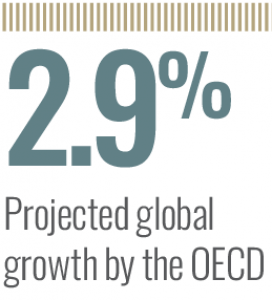
Falling oil prices are having a domino effect on the global energy stocks after dropping between six and seven percent, with European goliaths falling by between six and eight percent and US oil corporations falling by five to seven percent. Both the US benchmark and the global benchmark crude oil prices have fallen significantly, reaching their lowest levels since December 2021. The price of the US benchmark dropped by six percent to $67.48 per barrel, the most since July 2012. In a similar vein, the benchmark Brent Crude price fell by almost five percent to a low of $71.46 a barrel.
While it may be great to pay less for petrol, the market impact goes beyond mere lower consumer prices. Changes in oil prices have a ripple impact on the world economy. Perhaps unsurprisingly, the oil business itself is one of the most significant casualties. Oil companies may suffer greatly if oil prices fall. Because they are selling their oil for less money, they are making less money, which can result in job losses, production reductions, and even bankruptcies. It includes not just the larger oil businesses but also the smaller ones and the nations whose economies significantly rely on oil exports.

Oil prices plunged in the first quarter of the year in response to the collapse of two top US banks, Silicon Valley Bank and Signature Bank. Failure of the banking system is putting investors on the back foot. Hefty estimates for oil demand were quashed by the worry that the effects of this failed bank crisis would spread to the wider financial system. Market analysts at Oanda warned that due to lingering “contagion” risks brought on by the turbulence in the banking sector, the oil market will be “locked in a surplus for most of the first half of the year.”
With the sanctions imposed on Moscow due to the war in Ukraine, the inflation rate in the US has climbed to its highest level in 40 years, predicting an unavoidable recession. To combat this, the Federal Reserve has raised the interest rate to its highest level since 2007. Even while some have predicted that the banking crisis would likely soon come to an end and that the price of oil will recover swiftly, there is nonetheless some concern about the possibility of future interest rate increases. The effects of the interest rate increases are likewise hard to predict and may continue to highlight financial vulnerabilities brought on by excessive debt and stretched asset valuations, as well as in particular financial market areas.
According to a WEF report, “with price changes, there is a shift in profiting between oil producing and oil consuming countries”, so while low oil prices may be seen as difficult for countries that export it, it is manageable. Oil exporting nations are making adjustments to their fiscal and monetary policies in response to falling oil prices to lessen the effects on their economies. This may entail decreasing government expenditure, raising taxes, eliminating subsidies, and putting in place monetary tightening measures like higher interest rates.
Apart from that, US CPI has increased immensely, putting pressure on the economy where the Federal Reserve is already dealing with the rising inflation amid banking crises. The oil market can turn around if the Federal Reserve reduces the interest and inflation rates. But at the moment it seems like the market is either preparing for a future recession or it may be that one or more funds has to raise cash and lower the risk on their books due to concerns over liquidity following the bank failures.
Is there a ray of hope?
But it’s not all doom and gloom. Lower oil prices are also attracting big investors like Warren Buffet who has increased his stake in the oil company Occidental Petroleum (OXY – 0.45 percent). With the most recent acquisitions, Buffett’s company Berkshire Hathaway now has a 22.2 percent share in the business. It has acquired over 200 million shares valued at $12.2bn. It is anticipated that China’s economy will bounce back and this year demand will drive from the Chinese market.
As the largest oil consumer in the world, an increase in demand from China could turn oil around. The International Energy Agency (IEA) anticipates that the oil demand will increase by two million barrels-per-day in 2023. According to the Executive Director of the IEA “With the Chinese economy now recovering, it will have major implications for oil and gas market balances.” The OECD has also raised its forecast for global economic growth from 2.2 percent in November to 2.6 percent this year and 2.9 percent in 2024, an increase of 0.2 percentage points over the previous prediction. However, OECD warned that the recovery is still precarious and that risks are still heavily weighted to the downside despite the upward revision of growth expectations.
For all the positive signs, there is still considerable uncertainty over whether or not oil companies will be able to attract investors’ attention, how well China will recover, the continuing effects of the war in Ukraine and the overall geopolitical climate. For now at least, it’s a waiting game.


